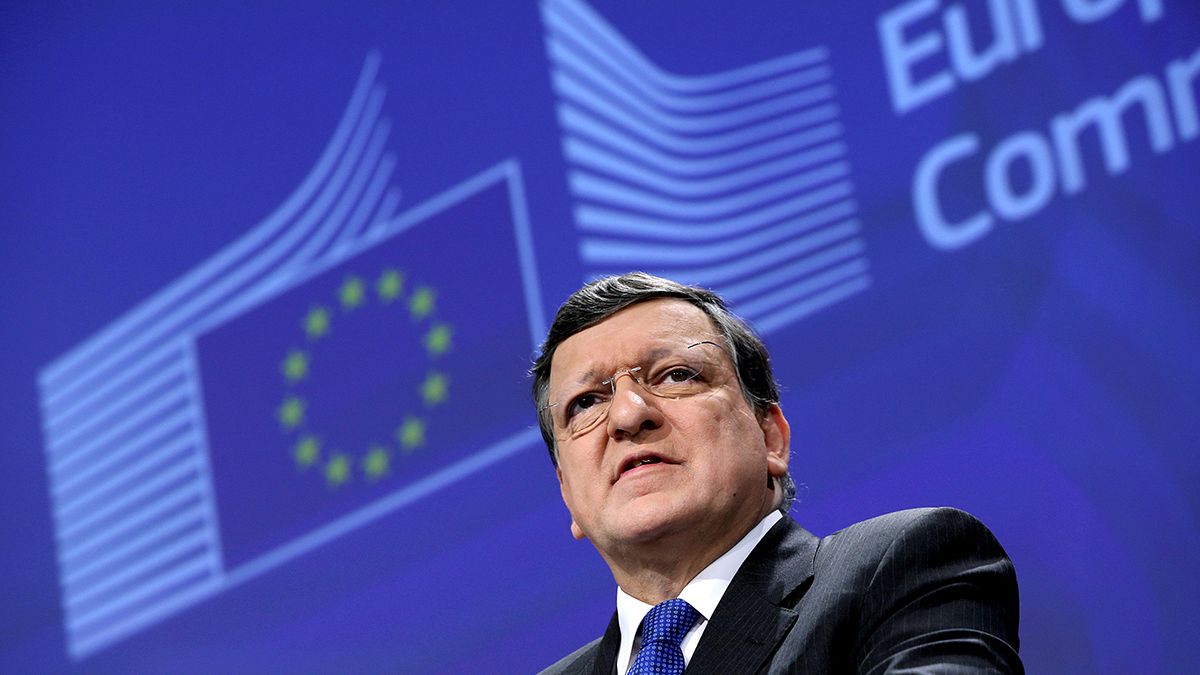Exclusive: Golden goodbyes to former EU chiefs are set to cost European taxpayers more than nine million euros, Euronews can reveal.
Exclusive: Golden goodbyes to former EU chiefs are set to cost European taxpayers more than nine million euros, Euronews can reveal.
Former European Commissioners – who lead the European Commission (EC), the EU’s civil service – are entitled to special allowances designed to ease their transition into the next stage of their careers, even though many of the most-recently departed cohort juggle several jobs and advisory positions.
European Commissioners already earn nearly 250,000 euros-a-year.
But, each month after they leave, they are paid between 40 and 65 percent of their monthly EC wage, with these payments, referred to as ‘transitional allowances’, lasting as long as two years, depending on the person’s length of service.
Official documents seen by Euronews show around 3.8 million euros have been paid out in transitional and family allowances to former European Commissioners since 2014, with a further 5.7 million euros set aside for 2016/17.
The EC has refused, on privacy grounds, FOI requests asking for a breakdown of transitional allowance payments to former commissioners. But even the shortest-serving could be entitled to 200,000 euros over two years.
Critics say there is not enough transparency around the allowances and that they should be reviewed.
They have linked the payments to controversies involving Brussels’ so-called revolving door, a figurative term designed to highlight concerns about how close senior EU staff are to the private sector and the conflicts of interests which allegedly arise.
Former European Commission president José Manuel Barroso was criticised in the summer for taking up a position with Goldman Sachs, which will include advising the investment bank about Brexit.
Vicky Cann, a campaigner at Corporate Europe Observatory (CEO), told Euronews: “This might seem like a high figure [European Commissioners’ transitional allowances], but it could be a price worth paying if such payments prevent former commissioners accepting new jobs which create conflicts of interest.
“But there is far too little transparency about who receives what; and deep suspicion that such allowances do not stop problematic job moves.
“We need wholesale reform of the revolving door rules for commissioners, and these allowances should also be reviewed to check they are fit for purpose.”
The EC is led by 28 commissioners who are appointed for five-year terms, with the latest one taking office in November 2014.
The EC’s president choses the commissioners based on recommendations from member states.
There is one commissioner for each EU country, meaning their number has increased in parallel to expansion of the union.
Commissioners were able to claim transitional allowances for up to three years, but this was reduced to two in February 2016. It formed part of reforms decided by the Council of the European Union, which also included changing the age at which commissioners could claim a pension.
Official documents seen by Euronews do not have a detailed breakdown of the 3.8 million euro figure, but it includes transitional allowances paid to Commissioners, and family allowances, which can include payments for children and their education.
The transitional allowance is essentially intended as a top-up to ensure a former Commissioner has the same income in the months after leaving the EC.
If new paid employment is found and declared, the transitional allowance could be reduced, but only in cases where the new salary and the transitional allowance together are more than the former salary at the EC.
An EC spokesman told Euronews it was the Council of the European Union – the body that has representatives from each member state’s national governments – rather than the European Commission, that set the amount of the transitional allowance, and that recent reforms had seen the rules tightened.
